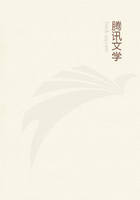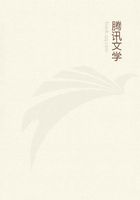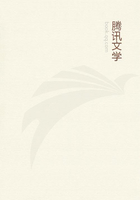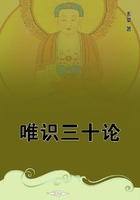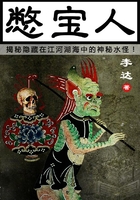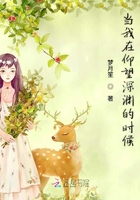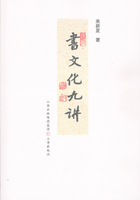ON THE BORDER-LAND OF
SPIRITS
Death and Funeral Customs. The Sacred Lock of Hair. Reincarnation and the Converse of Spirits. Occult and Psychic Powers. The Gift of Prophecy.
The attitude of the Indian toward death, the test and background of life, is entirely consistent with his character and philosophy.
Death has no terrors for him; he meets it with simplicity and perfect calm, seeking only an honorable end as his last gift to his family and descendants. Therefore he courts death in battle; on the other hand, he would regard it as disgraceful to be killed in a private quarrel. If one be dying at home, it is customary to carry his bed out of doors as the end approaches, that his spirit may pass under the open sky.
Next to this, the matter that concerns him most is the parting with his dear ones, especially if he have any little children who must be left behind to suffer want. His family affections are strong, and he grieves intensely for the lost, even though he has unbounded faith in a spiritual companionship.
The outward signs of mourning for the dead are far more spontaneous and convincing than is the correct and well-ordered black of civilization. Both men and women among us loosen their hair and cut it according to the degree of relationship or of devotion. Consistent with the idea of sacrificing all personal beauty and adornment, they trim off likewise from the dress its fringes and ornaments, perhaps cut it short, or cut the robe or blanket in two. The men blacken their faces, and widows or bereaved parents sometimes gash their arms and legs till they are covered with blood. Giving themselves up wholly to their grief, they are no longer concerned about any earthly possession, and often give away all that they have to the first comers, even to their beds and their home. Finally, the wailing for the dead is continued night and day to the point of utter voicelessness; a musical, weird, and heart-piercing sound, which has been compared to the, "keening" of the Celtic mourner.
The old-time burial of the Plains Indians was upon a scaffold of poles, or a platform among the boughs of a tree--their only means of placing the body out of reach of wild beasts, as they had no implements with which to dig a suitable grave. It was prepared by dressing in the finest clothes, together with some personal possessions and ornaments, wrapped in several robes, and finally in a secure covering of raw-hide. As a special mark of respect, the body of a young woman or a warrior was sometimes laid out in state in a new teepee, with the usual household articles and even with a dish of food left beside it, not that they supposed the spirit could use the implements or eat the food but merely as a last tribute. Then the whole people would break camp and depart to a distance, leaving the dead alone in an honorable solitude.
There was no prescribed ceremony of burial, though the body was carried out with more or less solemnity by selected young men, and sometimes noted warriors were the pall-bearers of a man of distinction. It was usual to choose a prominent hill with a commanding outlook for the last resting-place of our dead. If a man were slain in battle, it was an old custom to place his body against a tree or rock in a sitting position, always facing the enemy, to indicate his undaunted defiance and bravery, even in death.
I recall a touching custom among us, which was designed to keep the memory of the departed near and warm in the bereaved household. A lock of hair of the beloved dead was wrapped in pretty clothing, such as it was supposed that he or she would like to wear if living. This "spirit bundle," as it was called, was suspended from a tripod, and occupied a certain place in the lodge which was the place of honor. At every meal time, a dish of food was placed under it, and some person of the same sex and age as the one who was gone must afterward be invited in to partake of the food. At the end of a year from the time of death, the relatives made a public feast and gave away the clothing and other gifts, while the lock of hair was interred with appropriate ceremonies.
Certainly the Indian never doubted the immortal nature of the spirit or soul of man, but neither did he care to speculate upon its probable state or condition in a future life. The idea of a "happy hunting-ground" is modern and probably borrowed, or invented by the white man. The primitive Indian was content to believe that the spirit which the "Great Mystery" breathed into man returns to Him who gave it, and that after it is freed from the body, it is everywhere and pervades all nature, yet often lingers near the grave or "spirit bundle" for the consolation of friends, and is able to hear prayers. So much of reverence was due the disembodied spirit, that it was not customary with us even to name the dead aloud.
It is well known that the American Indian had somehow developed occult power, and although in the latter days there have been many impostors, and, allowing for the vanity and weakness of human nature, it is fair to assume that there must have been some even in the old days, yet there are well-attested instances of remarkable prophecies and other mystic practice.
A Sioux prophet predicted the coming of the white man fully fifty years before the event, and even described accurately his garments and weapons. Before the steamboat was invented, another prophet of our race described the "Fire Boat" that would swim upon their mighty river, the Mississippi, and the date of this prophecy is attested by the term used, which is long since obsolete. No doubt, many predictions have been colored to suit the new age, and unquestionably false prophets, fakirs, and conjurers have become the pest of the tribes during the transition period.
Nevertheless, even during this period there was here and there a man of the old type who was implicitly believed in to the last.

